By Koen Heye, 14 December 2022
SITECORE SYMPOSIUM 2022 RECAP
SITECORE BUSINESS UPDATE
The yearly Sitecore Symposium is now a few weeks behind us. A short recap of the announcements and the event was hardly due!
The venue this time was in Chicago – a beautiful city to visit – where we could enjoy the 3-day event.
The opening keynote was presented by Steve Tzikakis, CEO of Sitecore, who brought a business update and a positive vibe to the stage. The focus of Sitecore, its team and its products; is Customer Centricity and Delight. Which is also only possibly through the extensive partner network program, a focus on development of new products and on the composability of them.
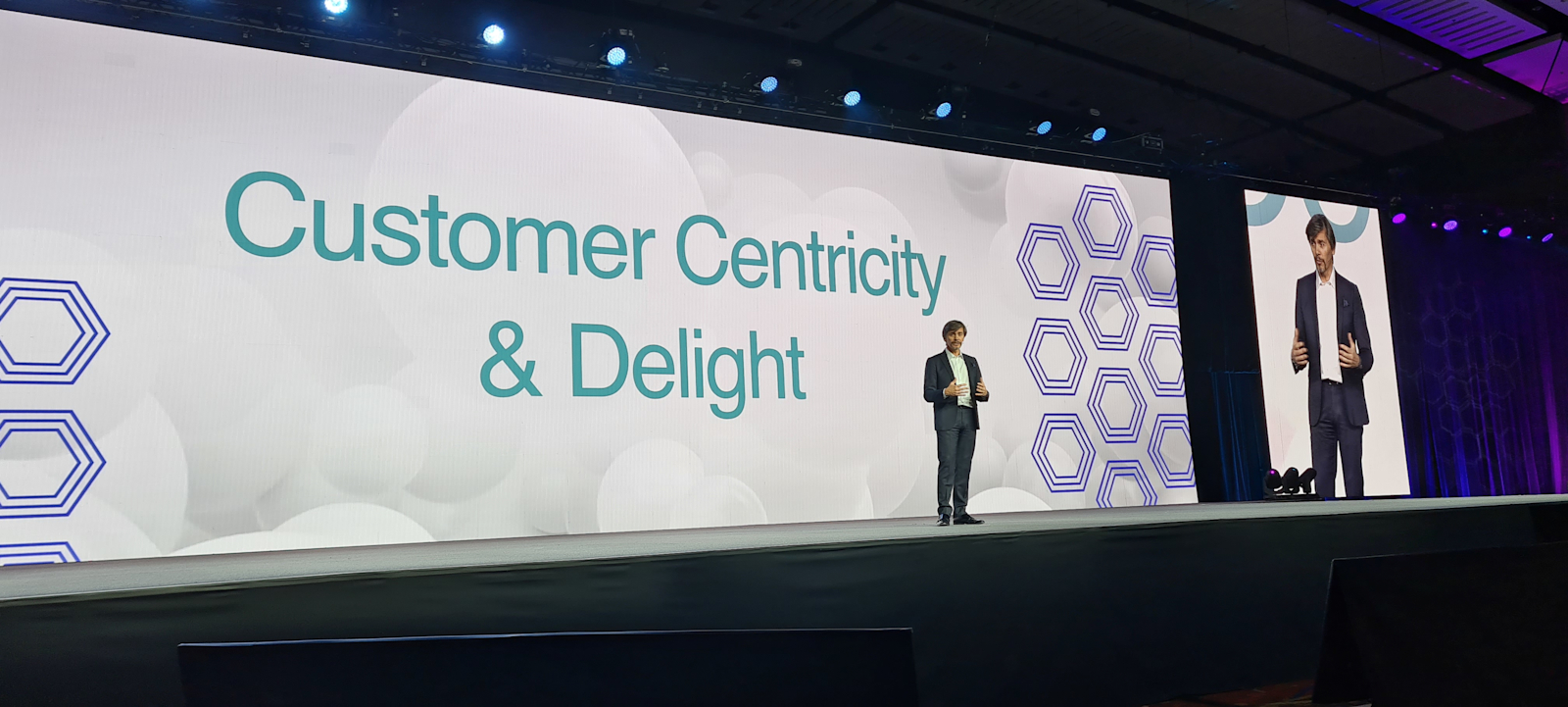
He took the opportunity to announce 3 new offerings within the Sitecore product lineup to align with this strategy:
-
Content Hub One
-
Search
-
Connect
And announced the general availability of XM Cloud, the modern SaaS CMS to create and manage content.
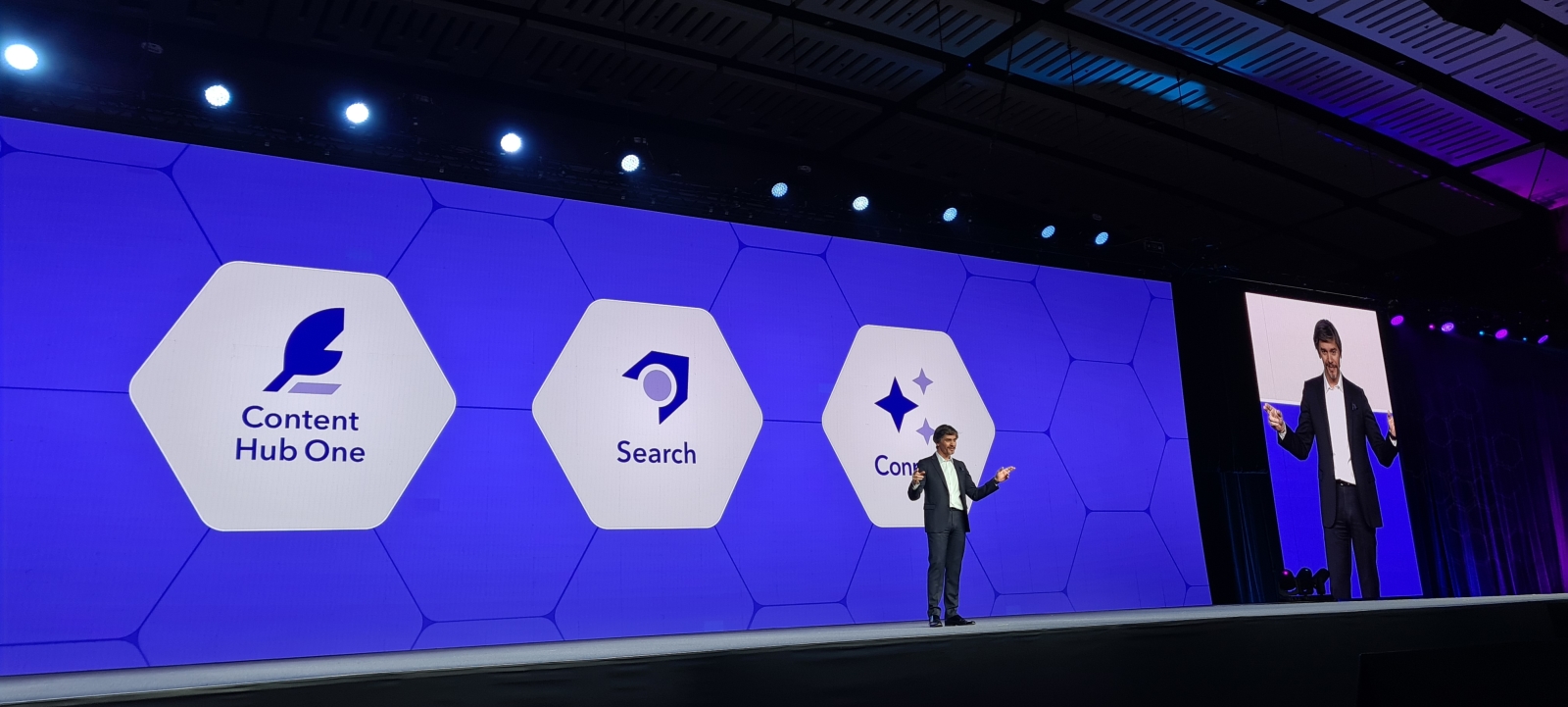
THE FUTURE
During the Symposium more detailed information about those products were provided. Although we had to wait until the 2nd day when Dave O’Flanagan – Chief Product Officer at Sitecore – dove into a technical overview of the future of Sitecore and its products.
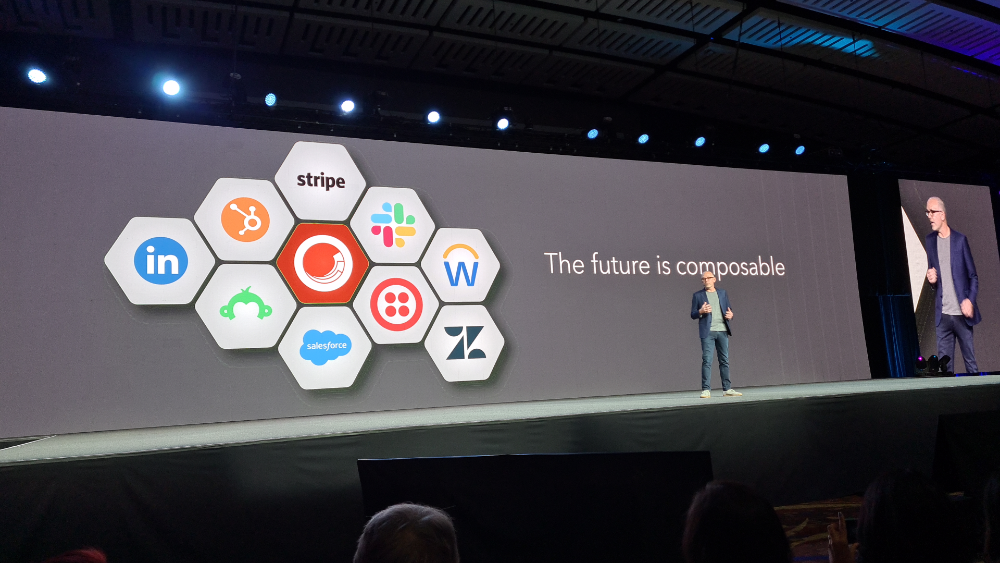
Every technology stack is unique but being able to combine the best of breed solutions will provide you with a perfect stack that fits your needs. Which is why the future is composable.
The new Sitecore stack can be divided into 3 ‘clouds’:
Red > Engagement Cloud concerning all tools for sending mails, gathering customer data and personalization:
-
CDP: Customer Data Platform
-
Personalize: Personalization and testing
-
Send: Marketing Automation
Dark blue > Content Cloud for creating and maintaining content
-
Content Hub: Digital Asset Management
-
Content Operations: content workflow in Content Hub
-
Content Hub One: Pure Headless CMS
-
XM Cloud: Hybrid Headless Enterprise CMS
-
Search: Intelligent Content Search
Light blue > Commerce Cloud
-
Discover: Search & merchandising
-
OrderCloud: Headless Commerce
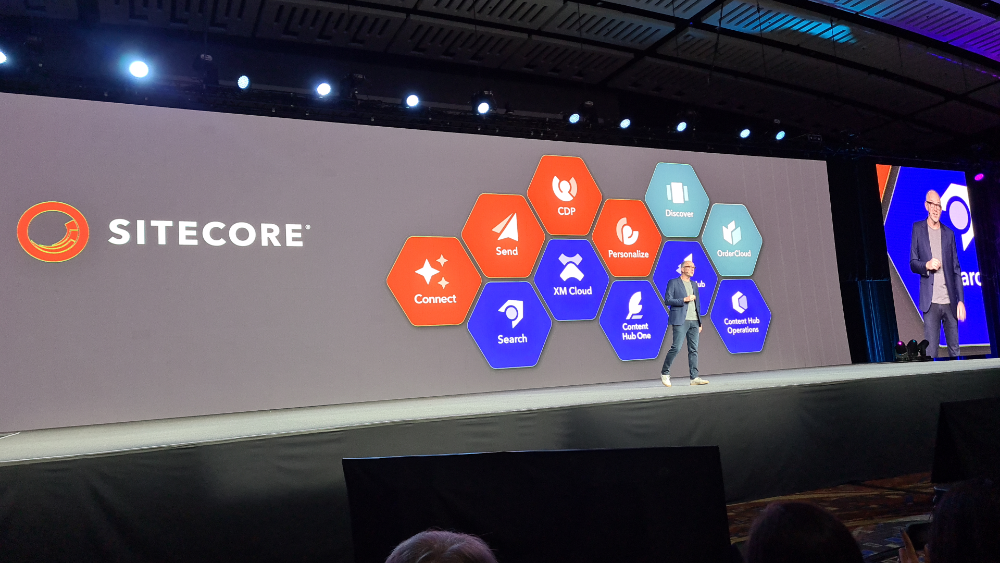
BUT HEY, WHAT ABOUT SITECORE XP?
What I didn’t mention yet are the offerings of Sitecore we already have for multiple years such as the classic Sitecore XM and Sitecore XP.
Although the focus of Sitecore is composable; Sitecore XM and XP still have their place within the product lineup since these products can be hosted on-prem or in a Sitecore Managed Cloud environment. Additionally, we got the confirmation on the Symposium that Sitecore is still working on improving and maintaining and bug fixing XP functionality.
They also announced that Sitecore 10.3 will be available shortly and a 10.4 version is foreseen for 2023.
1 of the new features in XM Cloud will also be made available in Sitecore 10.3: Webhooks.
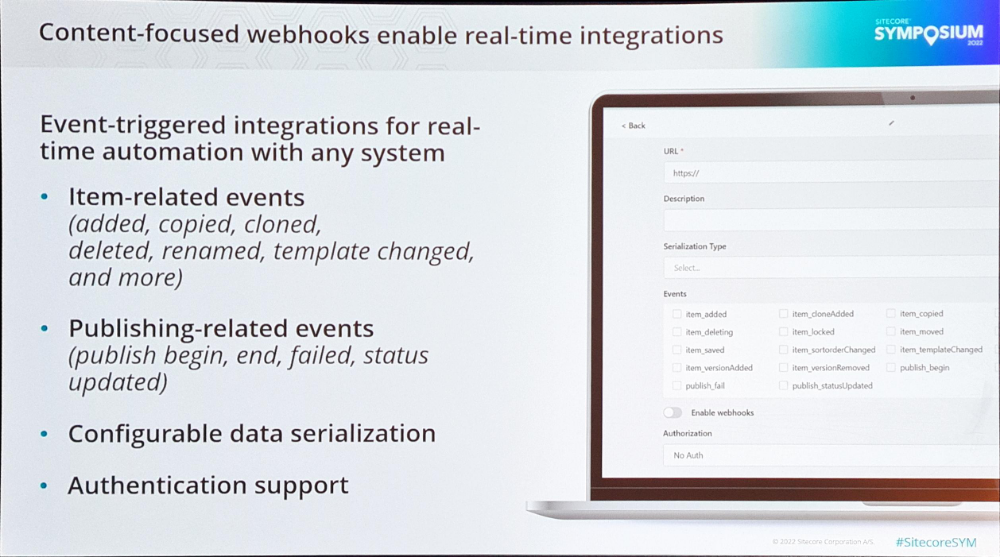
These webhooks provide Content Editors with more extensibility & flexibility to act on events happening in the Sitecore platform. You can trigger external systems more easily by using these hooks.
An example could be to get notified in Slack whenever a publish succeeded in Sitecore. You can configure a webhook that sends that message to a Slack channel.
It also provides developers with additional means to act on certain events.
ABOUT THE NEW PRODUCTS
XM Cloud
Since XM Cloud is SaaS, it brings you the advantage of not having an infrastructure and the advantage of having all updates managed by Sitecore. Where Sitecore describes this as ‘The last upgrade you’ll need to do’.
Next to those advantages, XM Cloud has the same Experience editor that you are used to have in Sitecore XM/XP. Users who are familiar with that editor, will find their way in XM Cloud as well.
Additionally, a new editor is available too: Pages, an all-new front-end authoring experience in a modern user interface.
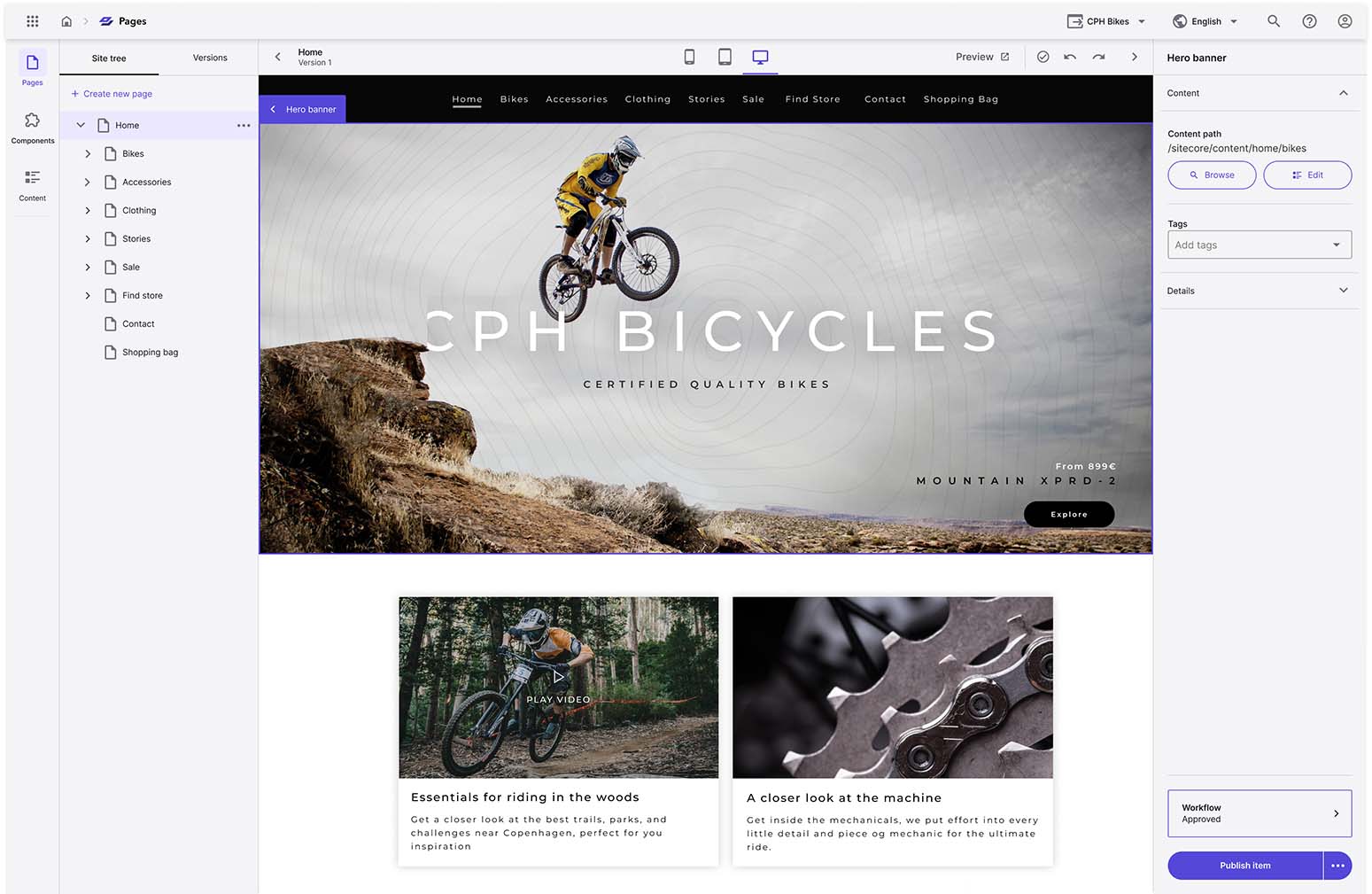
Other functionality of XM Cloud:
-
it allows you to pull content/data from other sources than Sitecore. Allowing you to combine data and thus provides more power to the business user.
-
It has a Components Builder UI which you can use to create component that can be dragged and dropped on your pages
-
Basic personalization is available which can be extended with functionality from Sitecore CDP / Personalize.
Important to know is that XM Cloud is headless CMS system. All content and pages you create are pushed to an Experience Edge, a Sitecore hosted GraphQL API endpoint.
This endpoint can then be consumed to build your website in the latest next gen development framework such as Next.JS.
Content Hub One
While XM Cloud is still focused on creating content for a specific site; Content Hub One can be seen as a dedicated tool for content modelling and creation. With the ability to distribute content to different channels by providing a headless API. So, Content Hub One does not have a page builder and component creator. XM Cloud however will be able to process the Content Hub One API and use this content for page building.
This means that Content Hub One is meant for multi-channel content, comparable with Contentful and Kentico Kontent for example.
It was built from the ground up based on Content Hub but with the difference that Content Hub has api’s structured for Data Asset Management. While Content Hub One has api’s built from scratch dedicated on providing content.
While there is a difference between these 2, it will be possible to upgrade from Content Hub One to Content Hub if you need additional features from Content Hub such as extensive media processing.
Sitecore Search
Sitecore Search was also announced. In a traditional Sitecore setup, you’ll have either SOLR running or a SearchStax integration for providing your website with search functionality.
Sitecore Search is dedicated search and indexing tool that can index all kinds of sources. Additionally, it indexes HTML and not just content from Sitecore XM Cloud, but any CMS system can provide content to this tool.
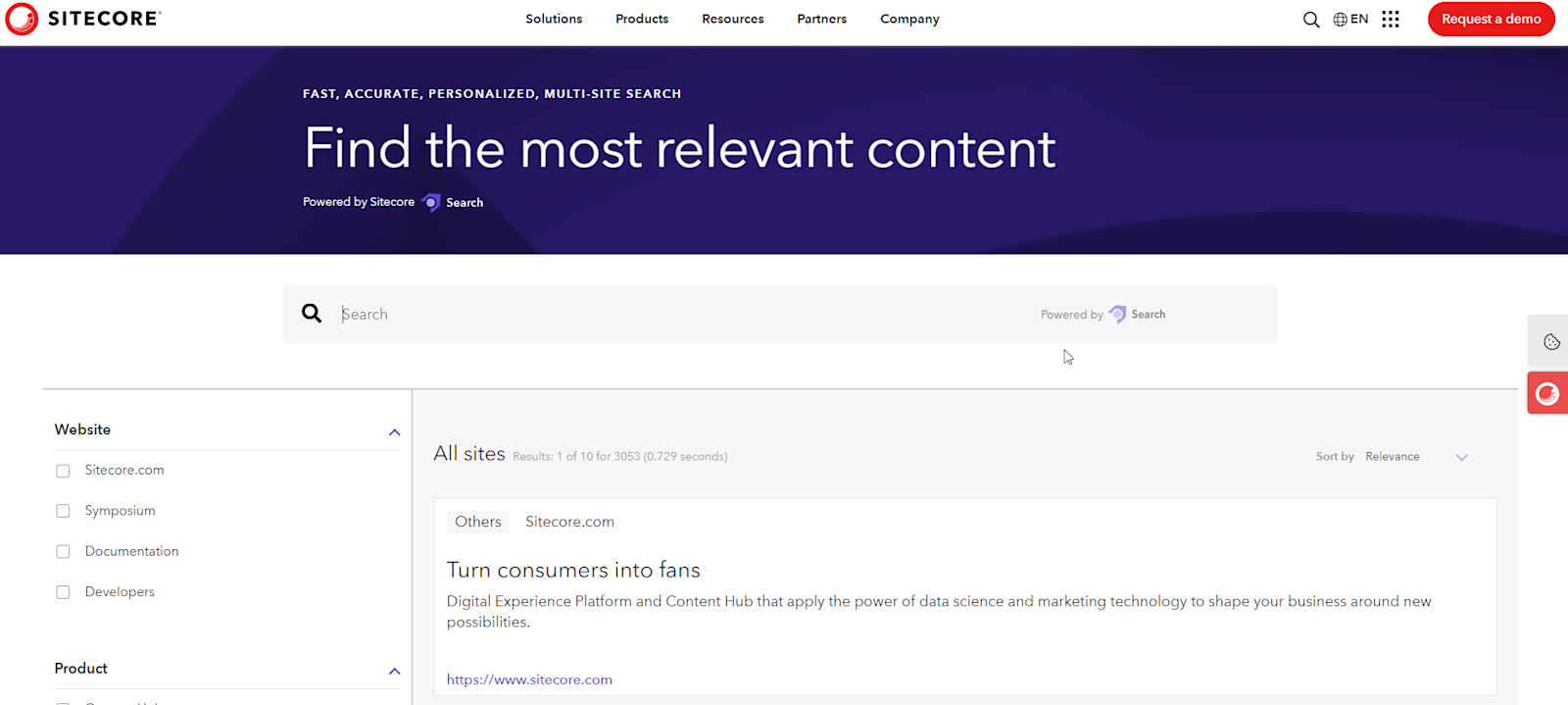
It provides you with a unified search experience and it is currently already implemented on the Sitecore website for example: https://www.sitecore.com/search
Some functionality is still missing though such as indexing documents.
Sitecore Search could provide an alternative to tools such as Algolia, which is a popular SaaS search engine.
Sitecore Connect
Another new product announced by Sitecore is Sitecore Connect, a rebranding of Workato.
Sitecore Connect allows you to create extensive workflows and integrations with the tools that you use. An ideal product in a composable world!
It is described as low code / no code making it easy to use. A handy drag & drop interface will allow you to compose the workflow/integration how you want.
It is meant to connect all possible tools and provide some default recipes to kickstart your integration. A recipe consists of a trigger and actions.
Triggers are conditions that prompt an action to happen.
Actions are a set of steps a connector can perform.
Sitecore adding a rebranding to this Workato functionality, it allows them to provide recipes with triggers and actions specifically for Sitecore products as well.
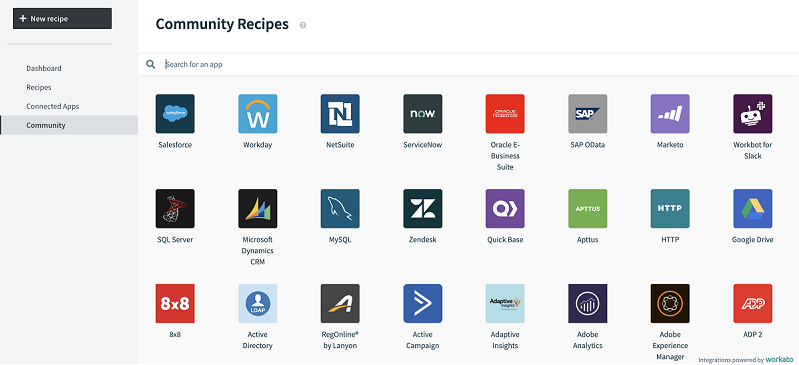
Sitecore Cloud Portal
All new Sitecore products can be found in the new Sitecore Cloud Portal environment https://portal.sitecorecloud.io
This gives you a central point to manage users and billing. But also allows you to start apps.
The first apps available through this portal are: XM Cloud, Content Hub One and Send.
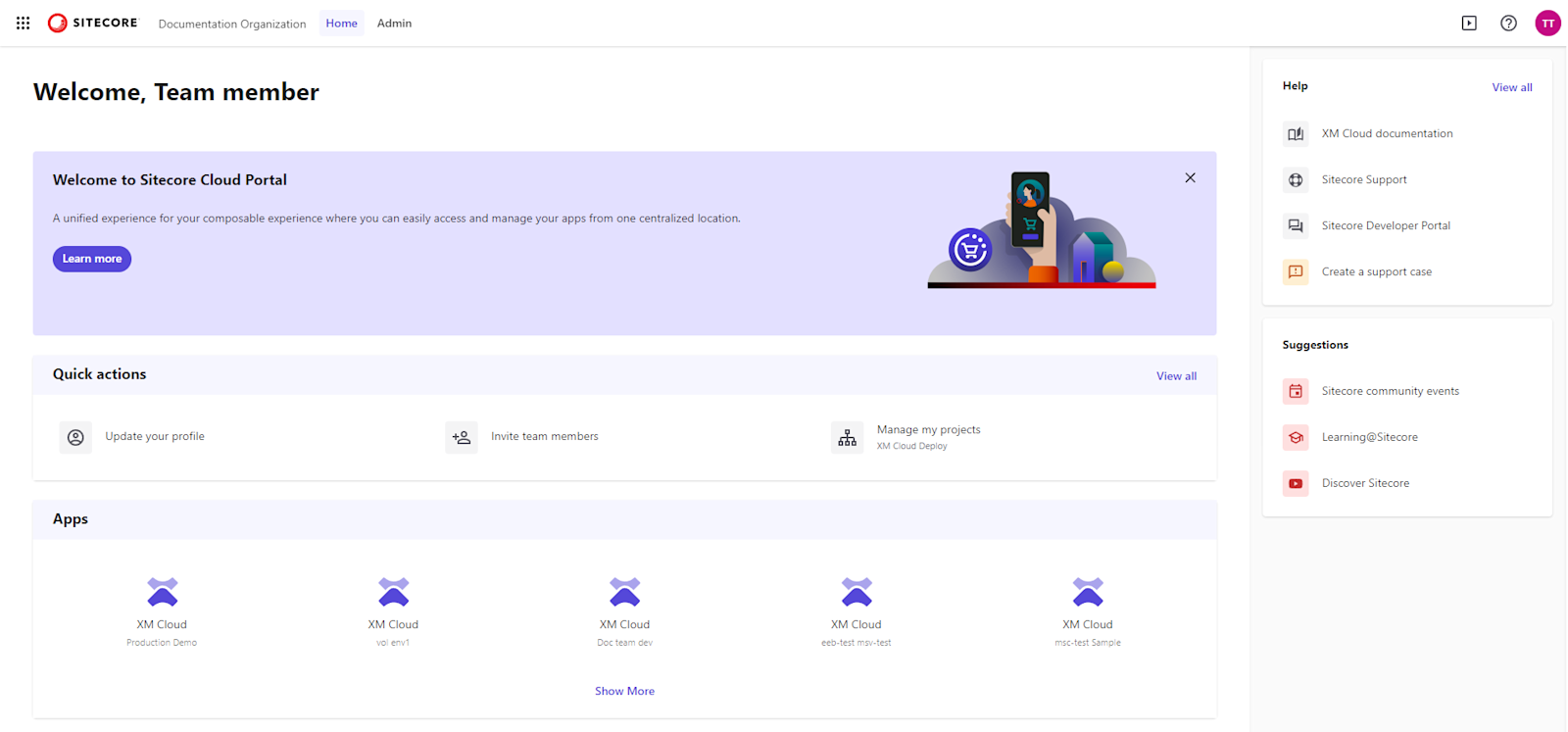
UPCOMING PRODUCTS
But what can we expect from Sitecore in the future? While new products were announced, they are not fully developed yet, and we will see updates to the mentioned products together with better integration between the different product solutions that Sitecore now offers.
On the Symposium there was also an announcement of 2 additional development projects:
Unified Tracking which will allow you to leverage CDP to track events happening on your websites or other analytics and act on them with Send, Personalize, or even Sitecore Connect.
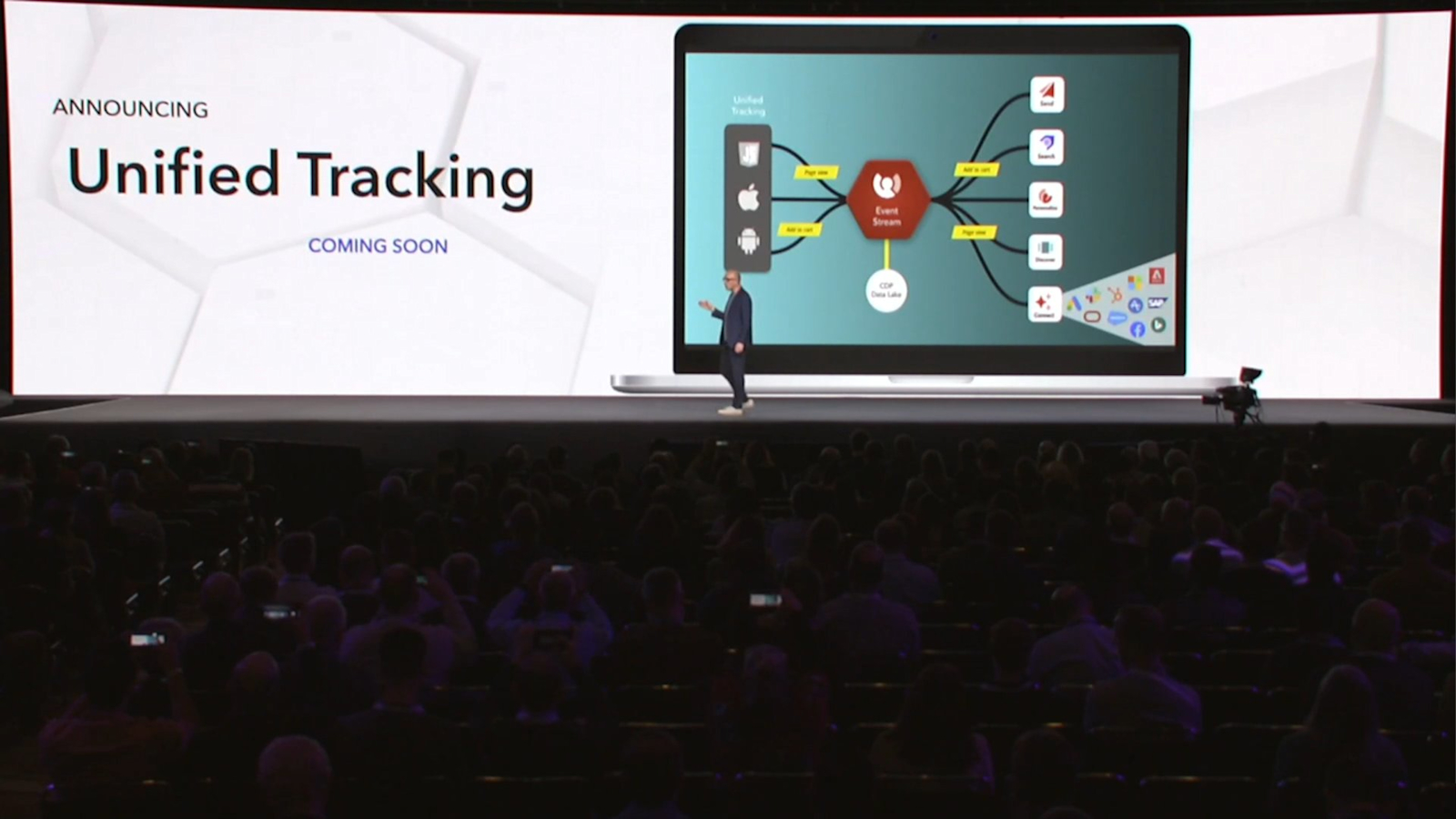
Project Affinity was also mentioned. This is an effort to close the gap between the existing OrderCloud environment – which targets mainly B2B – to also offer a solution for Commerce and B2C systems. Providing an administration UI based on the Sitecore Discover back-end and things like product catalogs. If you are not familiar with Sitecore Discover, this is an AI powered search and personalisation engine
Also on the roadmap is the development of a Storefront Builder which will allow you to kickstart your commerce setup.